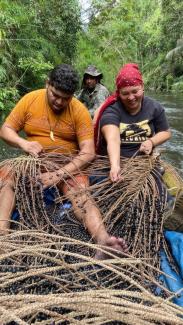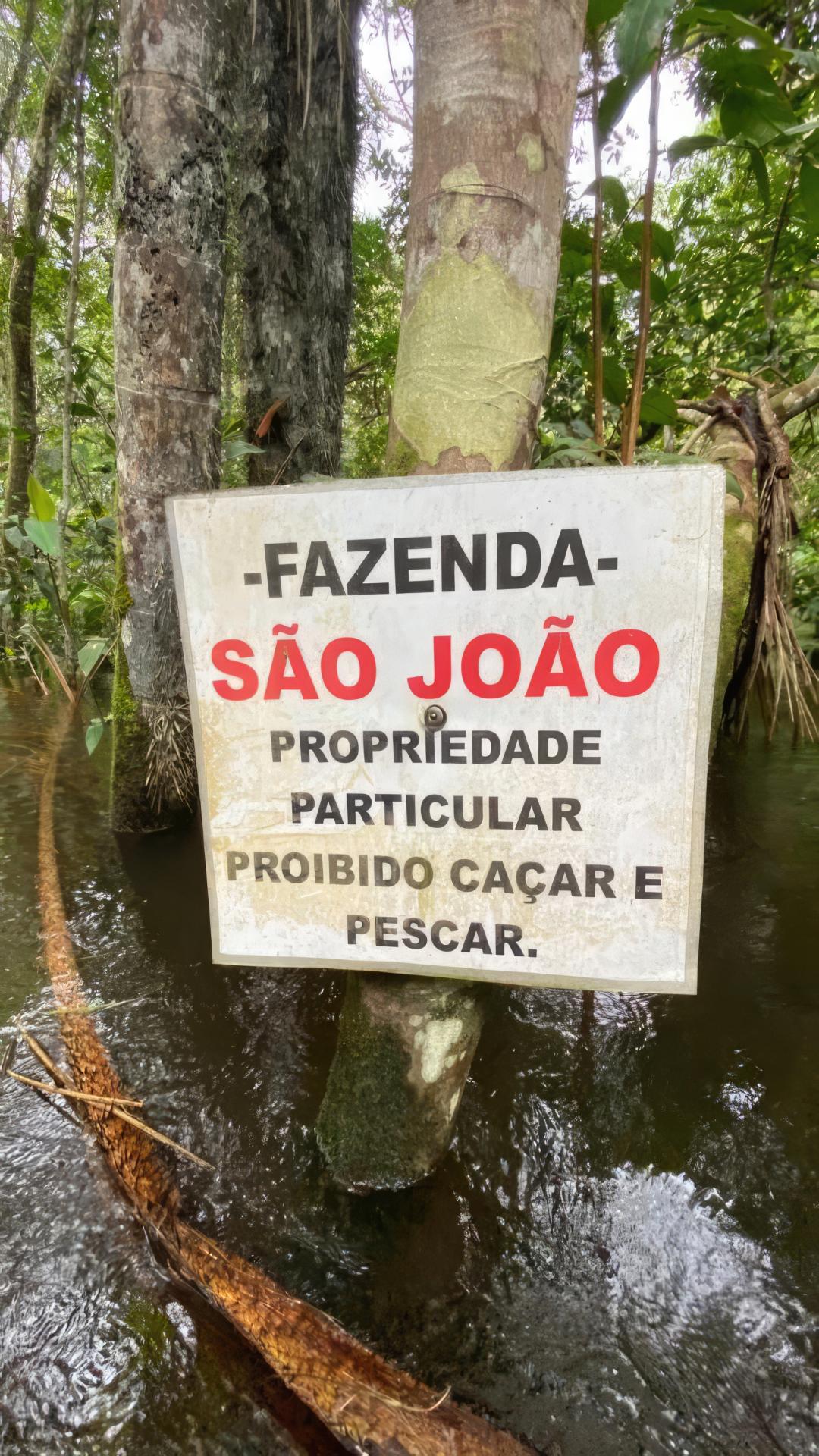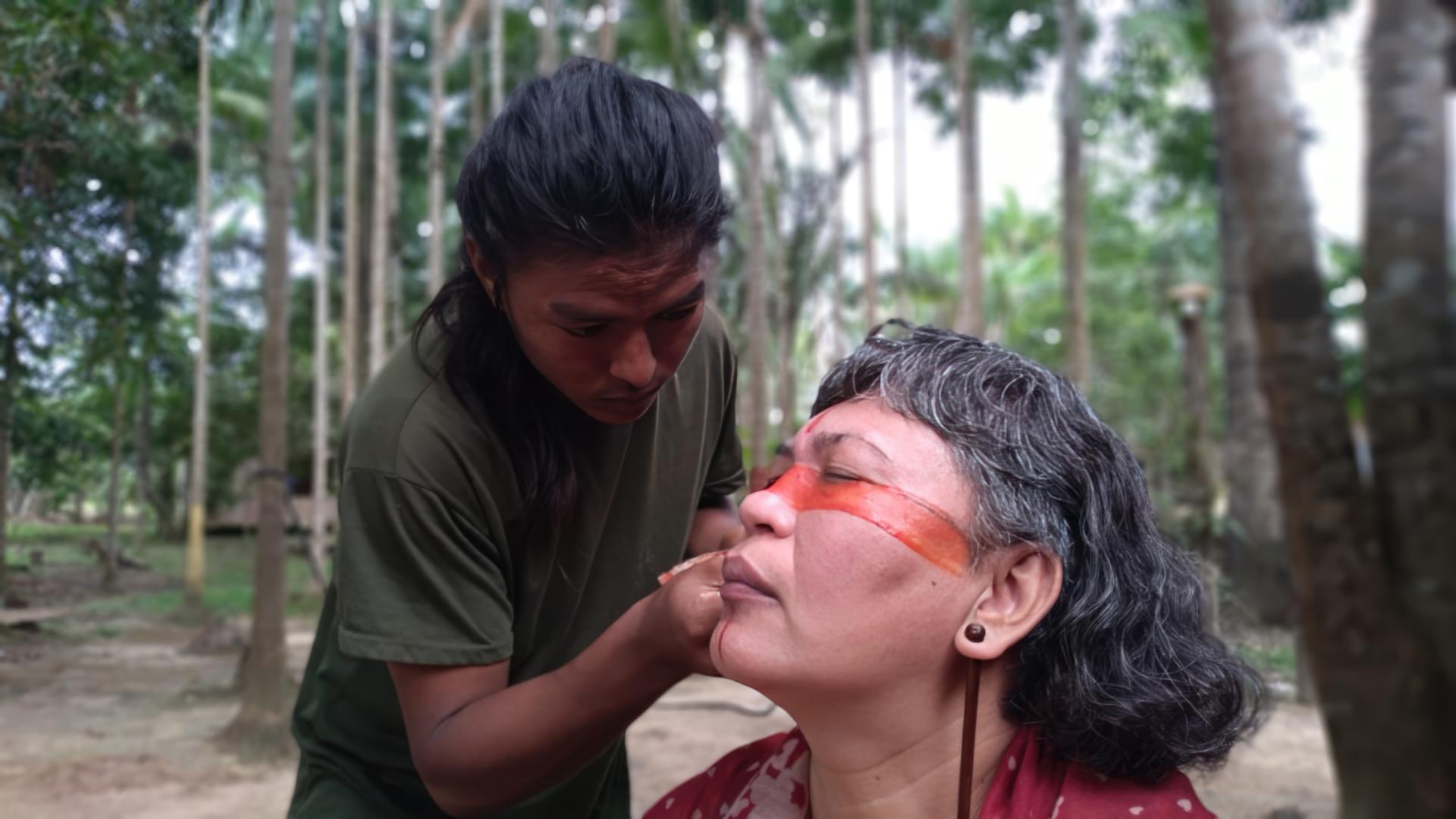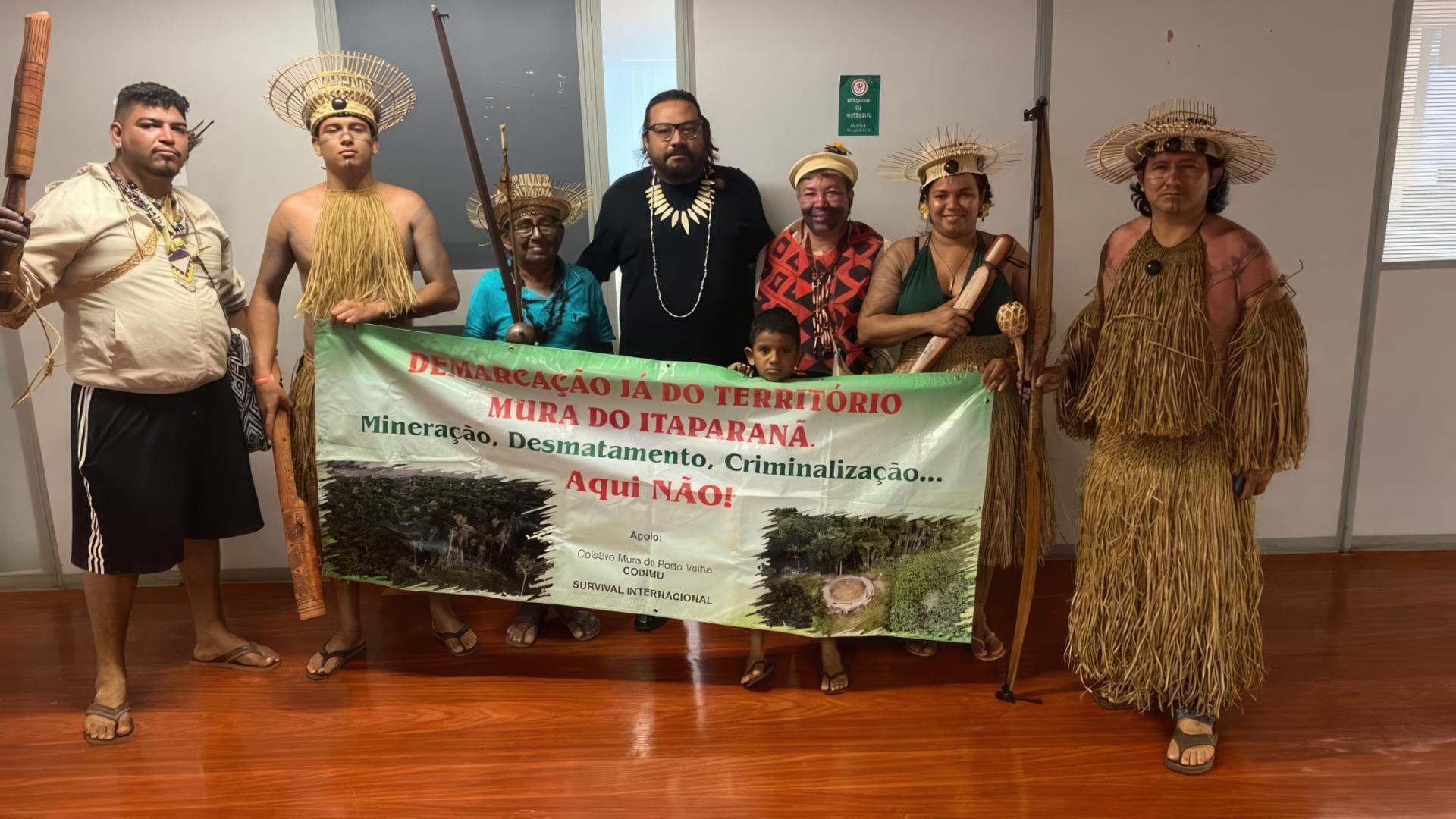
The relationship between the Brazilian State and Indigenous Peoples has been the subject of controversy and conflict throughout Brazil’s history. Although the current government has implemented policies and laws aimed at protecting the rights of Indigenous Peoples and their territories, it has also been the source of setbacks, confrontations, and disputes when natural resources are at stake. These contradictions against Indigenous Peoples are expressed in the Marco Temporal (temporal framework) law. The proposed Marco Temporal interpretation of the Constitution would have limited the rights of Indigenous Peoples to the lands they physically occupied on the date of the 1988 Federal Constitution,
thus eliminating the history and reality of Indigenous peoples by setting an arbitrary deadline for the recognition of Indigenous lands.
Mura Peoples’ land in the Porto Velho region in the western part of Brazil is heavily and negatively affected by gold mining, highways, deforestation, hydroelectric plants, and illegal gravel extraction. Amidst ongoing demands for the government to recognize Indigenous land rights, Mura communities across Brazil are struggling to hold on to their resources and keep them out of the hands of mining and timber companies.
Mura Peoples live in territories in the states of Amazonas and Rondonia. Some Mura territories are demarcated, and
others are in the process of demarcation. Although Mura Peoples are not recognized in Rondonia, through Coletivo
Mura de Porto Velho, they work together with the Mura communities on the banks of the Madeira River to strengthen
the defense of lakes, rivers, and the environment as a whole, revitalize Mura Traditional Knowledge, and protect relatives who are fighting extractive projects such as hydroelectric plants, soybean plantations, highways, and gold mining.

The Madeira River is Mura ancestral territory. Gold mining activities affect all of Mura land, as it attracts workers from outside of the community and contaminates the river waters and the fish entering the lake, where other Mura communities make their living. According to the chief of the Kapanã territory, drugs and human trafficking accompany the mining industry and are also major concerns for the communities.
Each community has its own organizational processes. However, during the pandemic, urban communities organized to support specific demands such as food and hygiene products. In 2022, with a grant from the Keepers of the Earth Fund, Coletivo Mura developed specific actions to support our collective plan towards achieving justice for our communities. The project was born with the aim of generating and exchanging knowledge and gaining political influence in the face of the aggressions we are suffering from outsiders.

The Mura community mobilizes in defense of their territory.
As part of our efforts to mobilize communities to protect our natural resources and land, Coletivo Mura works with
the community of Mura do Itaparanã on the banks of the Trans-Amazonian Highway. The Itaparanã community is
heavily affected by deforestation, illegal gravel extraction and gold prospecting in forest areas. In February 2021, Coletivo Mura made two visits to the Itaparanã territory, which has been waiting for full demarcation for more than 20 years, to learn about the ongoing invasions of the territory. In the past four years, deforestation, burning, and invasion have accelerated. We recorded a video of two leaders discussing the situation there. During our visit, invaders posted signs prohibiting the community from entering their own chestnut groves where they have collected nuts for generations. In another part of the territory, armed men with radios monitored the area while extracting gravel and destroying the source of the stream, which is sacred to the community.
Around the same time, more than 20 men went to the headwaters of the Itaparanã River and started clearing the
forest; we could hear the sounds of chainsaws from the village. Faced with the threat of total devastation and risk
to life, we held a meeting to address the issue. We decided to go to Brasília to make a formal complaint and deliver a
dossier with all of the documents pertaining to the pending demarcation request to the Brazilian government, together with the reports of the current invasions.
A document was drawn up and signed by the leaders to be taken to Brasília, where the leaders requested a hearing with the Ministry of Indigenous Peoples and demanded the suspension of the forestry concession in Balata Tufari, a region that falls within the Mura do Itaparanã territory and is close to the territory of the Juma Peoples.

The Mura community mobilizes in defense of their territory.
From April 24-28, 2023, Colectivo Mura and the Mura of Itaparanã attended the Acampamento Terra Livre, the largest Indigenous assembly in Pindorama (known more commonly as Brazil) in Brasilia. This trip was critical, as it was the first time that Itaparanã relatives were going to the encampment. We carried a banner reading: “Demarcação Já do Território Mura do Itaparanã” (Demarcation of the Mura do Itaparanã Territory) and held conversation circles within the camp.
We met twice with the Ministry of Indigenous Peoples and were also interviewed by the department responsible for territorial demarcation issues, where we delivered the documents and spoke about the situation of invasions and various rights violations suffered by the communities of Itaparanã. Based on these meetings and the delivery of documents, another meeting was scheduled, where our community’s experiences were reviewed in more detail.
We hope that the severity of our situation was understood by government officials. While we know that actions will not be taken overnight, we were happy to be heard after more than 20 years of fighting complaints and requesting support from the Brazilian government.
In 2022, Coletivo Mura De Porto Velho received a grant from the Keepers of the Earth Fund (KOEF) to support their
organizing and advocacy work. KOEF is an Indigenous-led fund within Cultural Survival designed to support Indigenous
Peoples’ community advocacy and development projects. Since 2017, KOEF has funded 310 projects in 41 countries through small grants totaling $1,603,307, as well as technical assistance, which have benefited 328 Indigenous Peoples in total. In 2023, 72 Indigenous projects and collectives in 21 countries were financed for a total amount of $543,605.
Top photo: The açai fruit is part of the biodiversity at risk due to extractivism.
